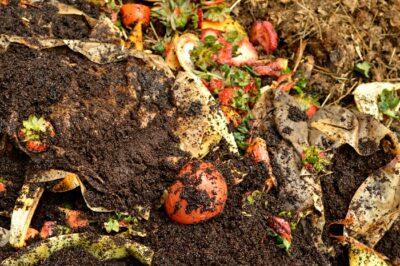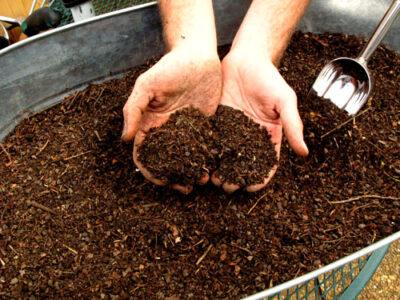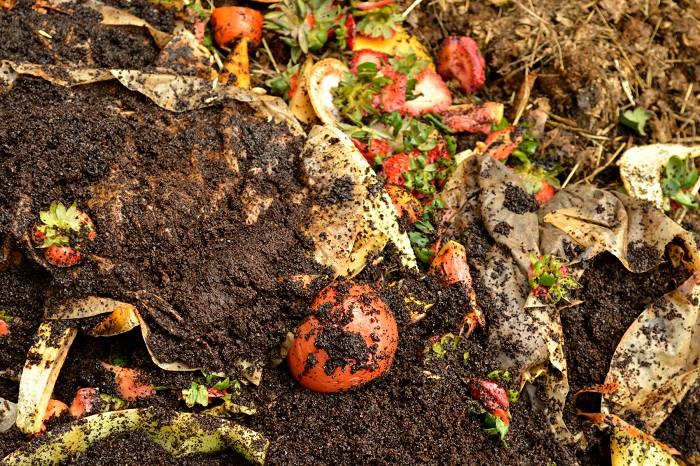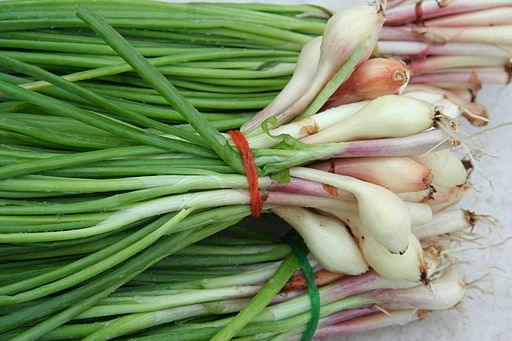
Plants devour richly organic composting soil like humans do a juicy red apple or thick sirloin steak.
Composting not only allows farmers and gardeners the ability to have ample amounts of healthy rich soil on hand for free, but it also reduces the amount of waste which ultimately winds up in landfills. Nitrogen-rich soil will help bolster the crop yield and provide more food for the dinner table.
A large drum container or small fenced-in bin are the only supplies you need to start building a compost pile. Begin a composting routine and convert what may seem like useless organic materials into nutrient-rich soil. Before tossing an item into the compost pile, refer to the list of soil enhancers and detractors below to get the most out of your bin-turning efforts.
The Secrets Of Sea Minerals To Grow More “Nutritionally-Dense Food” Than You Can Possibly Eat!
Here are 32 unique and even “odd” items you can put in a compost pile, and in turn greatly benefit your garden:
- Freezer-burned fruits and vegetables. If it is ice-covered and can’t be eaten, compost it.
- Pine cones. If the cones aren’t used for craft and bird feeders, put them in the compost bin.
- Algae and aquarium plants. The material from freshwater tanks adds extra nitrogen to the soil.
- Dryer lint. No need to toss it in the laundry room garbage can.
- Chicken manure. The matter possesses high amounts of potassium, phosphorus and nitrogen.
- Bird droppings. When you clean out the parrot cage, do something useful with the organic matter.
- Human hair. If you work at a salon or know someone who does, make good use of the cut hair.
- Paper towels. Turn the waste from non-reusable paper towels into compost material.
- Tea bags. From cup to compost, the bags serve a purpose.
- Coffee grounds. Morning caffeine can add energy to the soil, too.
- Sawdust. Sweep the shop room floor and put it in the compost pile.
- Old bills. Paid or unpaid, they make good fodder for composting.
- Tissues. The pile doesn’t care if they are clean or used.
- Ice cream. No need to cry when this dairy product spills.
- Pet bedding. Dump used hamster, rabbit and guinea pig bedding into the compost bin.
- Moldy cheese. Allow the hardened old cheese to contribute to the soil process.
-

Image source: Compost-Feldmans-fh.blogspot Tobacco. Dump the ash tray into the compost bin to add nutrients in the soil.
- Q-tips. Snip the cotton end with a pair of scissors before adding to the pile.
- Cardboard. Shred soda pop cartons and boxes for the pile.
- Graded homework. Let the old school papers of your children serve a new purpose.
- Peanut shells. Free up a little space in your trash can by composting the shells.
- Onion skins. Shed no tears for “Mother Earth” by reusing the skins to make healthy soil.
- Household dust. Capture the “dust bunnies” beneath your bed and compost them, too.
- Paper bags. If you aren’t going to reuse them, compost them.
- Used napkins. No need to put the face wipes in the trash; they work great in the compost pile.
- Wool fabric. Once your wool socks become too frayed to wear, add them to the pile.
- Ivory or castile soap. When all you are left with are small pieces, compost them.
- Dead insects. Shake them into the organic soil pile.
- Leather. Instead of tossing out an old watch band or belt, use it to enrich the compost pile.
- Seaweed. If you live near the ocean or take a sunny vacation, wash and allow the seaweed to dry and then put it in the compost bin.
- Pet hair. The next time you brush Fido, gather the loose hair and toss it into the pile.
- Corn husks and cobs. Save your garden and picnic leavings for the compost pile, too!
Finally, here are a list of items you should not compost:
- Human and animal feces from meat-consuming creatures should never be placed in the compost pile.
- Magazine and glossy catalog pages, or other heavily printed or metallic paper should not be placed in the bin. Foils do not break down easily and printing chemicals used in the process could contaminate organic crops.
- Dead plants should also be avoided if there is a possibility that bacteria or fungal issues caused the plants’ demise.
- Used cooking oil will also attract unwanted insects and animals to the compost pile.
- Pasta and baked good leavings will not harm the soil but will likely attract a multitude of birds and rodents to the compost pile, making a mess of the bin and possibly contaminating the soil.
- Milk products degrade easily, but are too attractive to pests to put in a compost bin.
- Rice, when raw, attracts birds and other pests to the bin. Discarded cooked rice almost always breeds bacteria you do not want growing in the soil.
- Walnuts contain juglone. Although it is naturally aromatic, it is also toxic to some plants.
Crops grown in compost soil are in a better position to withstand severe weather fluctuations and preserve the yield for harvest. If you’ve never composted, you’ll soon learn it’s one of the best steps to a bountiful garden.
What unique items do you compost, and what do you avoid? Tell us in the comments section below.
Sign up for Off The Grid News’ weekly email and get $600 worth of survival blueprints … free!












